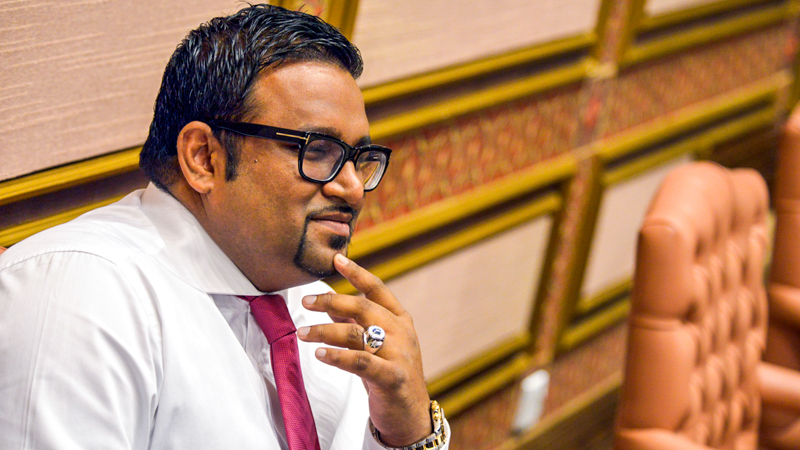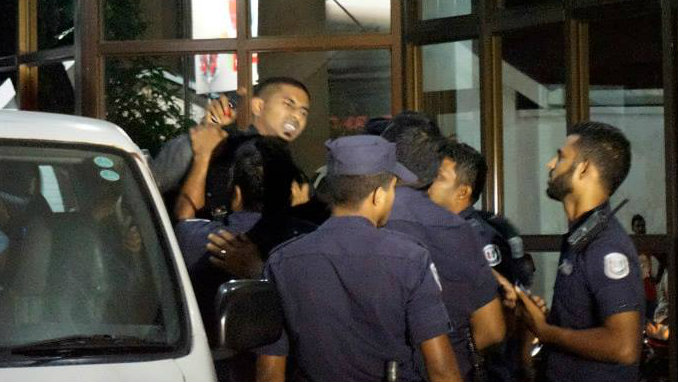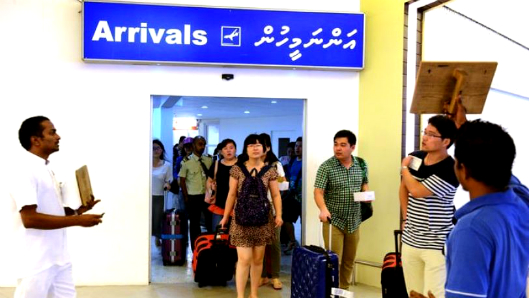President Abdulla Yameen has vetoed changes to the prison and parole law that would have stripped ex-president Mohamed Nasheed of his membership and leadership position in the opposition Maldivian Democratic Party (MDP).
However, the changes are expected to pass through parliament in an adjusted form that would still bar Nasheed from leading the MDP.
President Yameen reportedly advised parliament to adjust the planned changes so that convicts can remain members of political parties and associations, but did not recommend removing a clause barring them from leadership posts.
Critics of the government believe that clause is aimed specifically at Nasheed, who was jailed last month for 13 years on terrorism charges.
The president returned the bill to parliament for reconsideration yesterday and recommended revisions in light of issues raised by the attorney general, the President’s Office said.
Government-sponsored amendments to the Prisons and Parole Act had been passed on March 30 with 42 ruling coalition MPs voting in favour.
Nasheed was found guilty of terrorism last month over the detention of the criminal court chief judge in January 2012 and jailed for 13 years. The MDP contends that the charges were politically motivated, while the trial was widely criticised by the international community for its apparent lack of due process.
President’s Office spokesperson Ibrahim Muaz Ali and Majority Leader Ahmed Nihan were not responding to requests for comment at the time of publication.
Muaz told online news outlet CNM yesterday that the bill was unclear as to whether inmates could remain members of political parties, because of the ambiguous phrasing of the clause.
Muaz said the president believes the clause conflicts with the constitutional right to establish and participate in political parties.
Stripping convicts of political party membership would pose challenges to the Elections Commission in processing membership forms and maintaining registries of political parties, Muaz said.
President Yameen suggested rephrasing the clause to allow convicts to remain members of political parties and private associations, said Muaz, and to exempt detainees who have not been convicted of a crime.
Muaz noted that according to the constitution, fundamental rights and freedoms can only be limited to any extent “only if demonstrably justified in a free and democratic society”.
Speaking at a rally last week, MDP Chairperson Ali Waheed claimed Attorney General Mohamed Anil had advised parliament that the amendment was unconstitutional.
The chairman of the committee that was reviewing the legislation – ruling Progressive Party of Maldives MP Ibrahim Riza – kept the attorney general’s letter secret from other MPs, Waheed alleged.
Waheed declared that Nasheed remains the party’s leader and its presidential candidate for elections scheduled in 2018.
Voting on the bill meanwhile took place while MDP MPs were protesting inside the parliament chamber.
MDP MP Eva Abdulla told Minivan News at the time that the party would not accept the government using the People’s Majlis as “an extension of its tyranny to strip us of our democratic rights.”
“No amount of backtracking can strip him of the fact he formed the first political party in the country and became its first democratically elected leader. Or the fact that those who vote for this amendment today would not be in a political party if not for the hard work of this man to win them that freedom,” she said.









